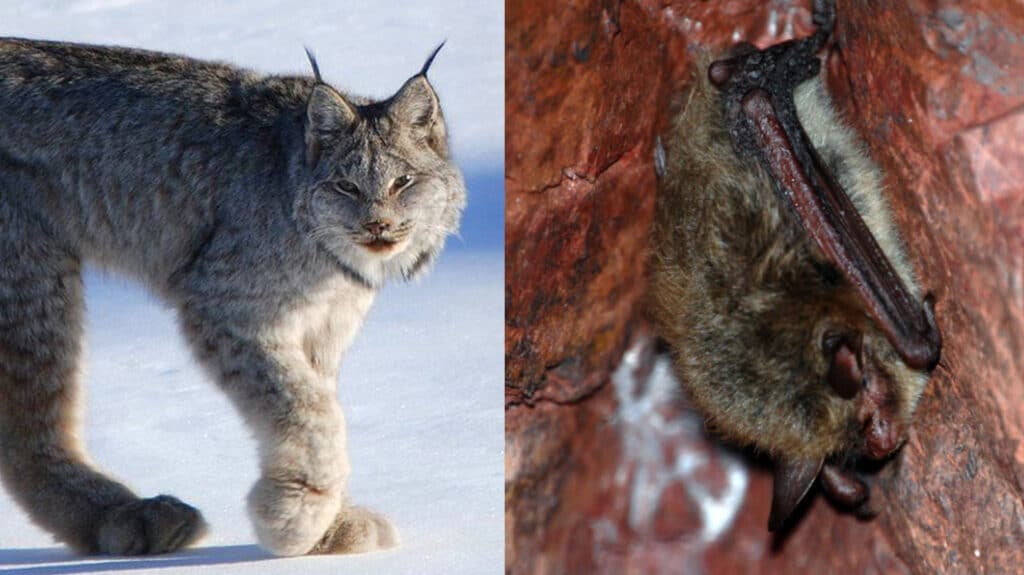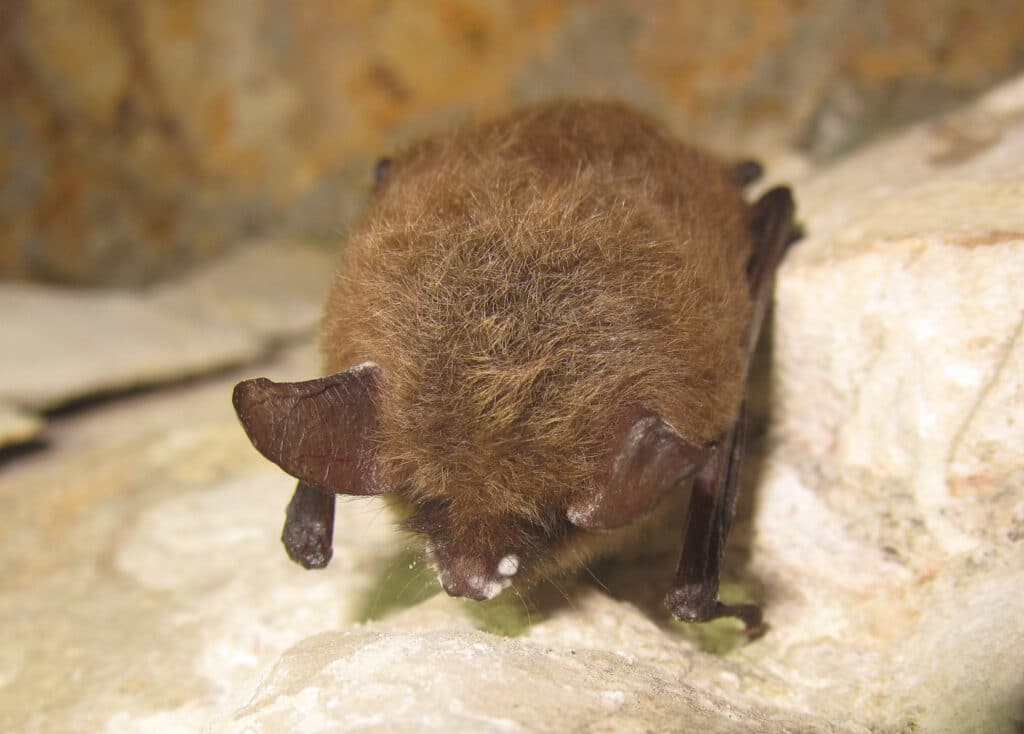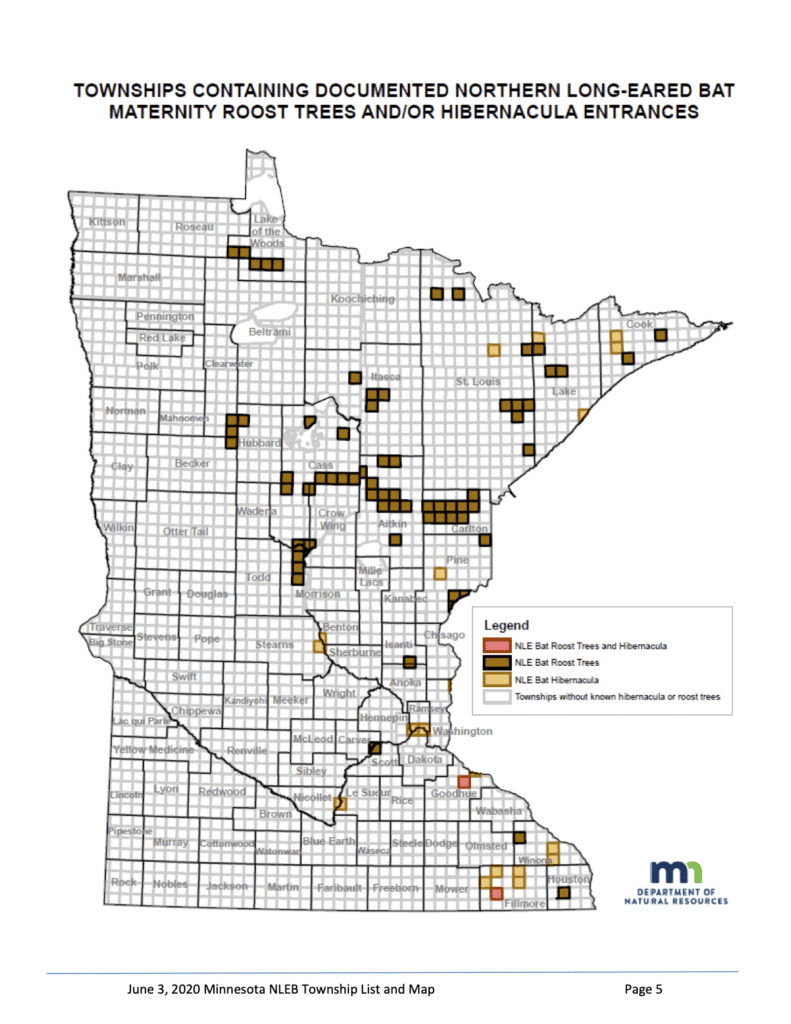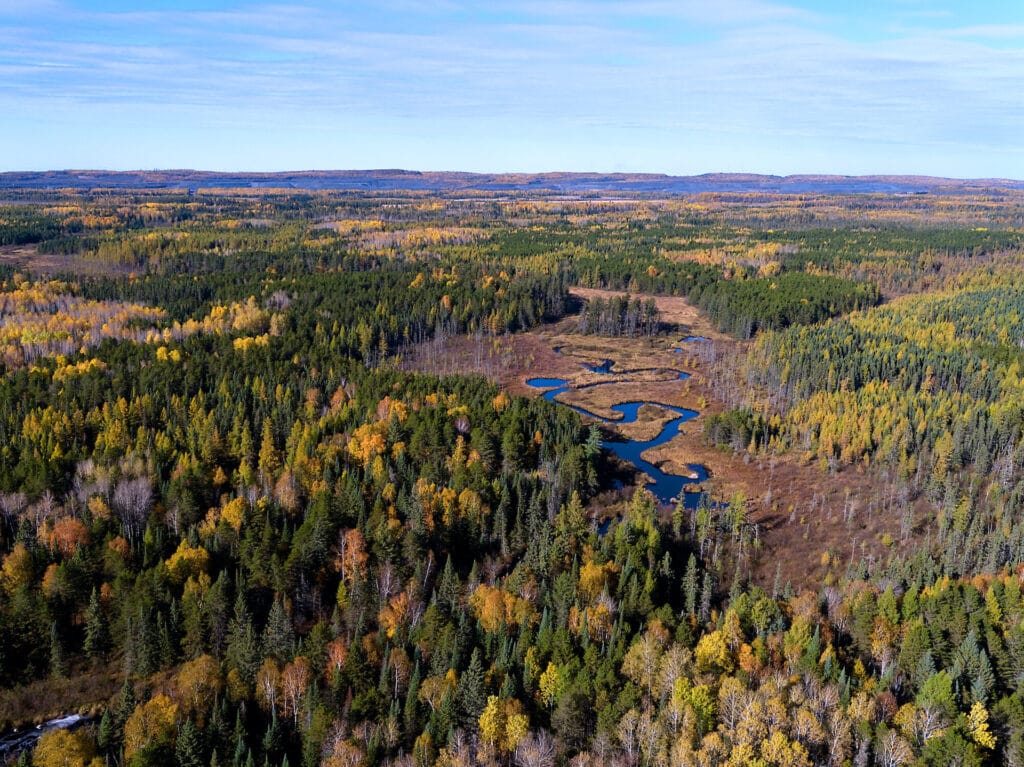
A coalition of northern Minnesota environmental groups has sued the federal government over its decision to transfer public lands to the PolyMet Mining Co., citing a failure to protect critical habitat for endangered Canada lynx and the northern long-eared bat.
The lawsuit is challenging a 2018 land exchange completed between PolyMet and the U.S. Forest Service. The mining company and the government traded lands so PolyMet could construct an open-pit mine on federal lands.
But the plaintiffs say the U.S. Fish and Wildlife Service erred in ruling the exchange would not harm critical habitat for lynx and the rare bat.
“These federal agencies can’t just ignore threats to animals headed for extinction,” said Marc Fink, a senior attorney at the Center for Biological Diversity. “This massive mine would wipe out more than a thousand acres of forest critical to the survival of the Canada lynx, whose paw prints have been found at the mine site. Mining has already fragmented wildlife habitat, and threatened animals like lynx won’t survive if their home is turned into an industrial mining zone.”
The groups say the open-pit mine would obliterate up to 4,000 acres of forests and wetlands. They say it’s an unacceptable impact for sensitive species.
Fragile animals

The northern long-eared bat is one of the species that has been hardest hit by white-nose syndrome, a fungal disease that has wiped out bat populations across the country in the past decade. The species’ population in New England has been reduced by 99 percent already. It was listed as threatened by the USFWS in 2015. The species generally is found in large unbroken mature forests, like some of the lands at the proposed mine site.

Canada lynx were listed as endangered in 2000. In 2008, the U.S. Fish and Wildlife Service designated much of northeastern Minnesota, including the PolyMet mine site, as critical habitat for the species. There is a reproducing population of the snow-specializing feline in the area, which is on the southern fringe of the species’ range. The animals need large tracts of unbroken forest to pursue their preferred prey, snowshoe hare.
“The destruction of wetlands and forests would harm many species of animals and plants, and key migration corridors in this region face growing threats from mining and potential mine expansion,” said Elanne Palcich with the Save Lake Superior Association. “The lynx and northern long-eared bat are like canaries in the coal mine, telling us that we must take action to protect what’s left before it’s too late.”
The lawsuit seeks to overturn the agency decisions that the PolyMet land exchange would not hurt critical habitat, and block development of the mine while a new Endangered Species Act analysis is conducted.
Plaintiffs include the Center for Biological Diversity, Save Lake Superior Association, Save Our Sky Blue Waters, Friends of the Cloquet Valley State Forest, and Duluth for Clean Water.
More information:
- Lawsuit Aims to Protect Threatened Lynx, Bats From Massive Copper Mine in Superior National Forest in Minnesota – Center for Biological Diversity
- Complaint for Declaratory and Injunctive Relief, U.S. District Court of Minnesota (PDF) – Center for Biological Diversity


